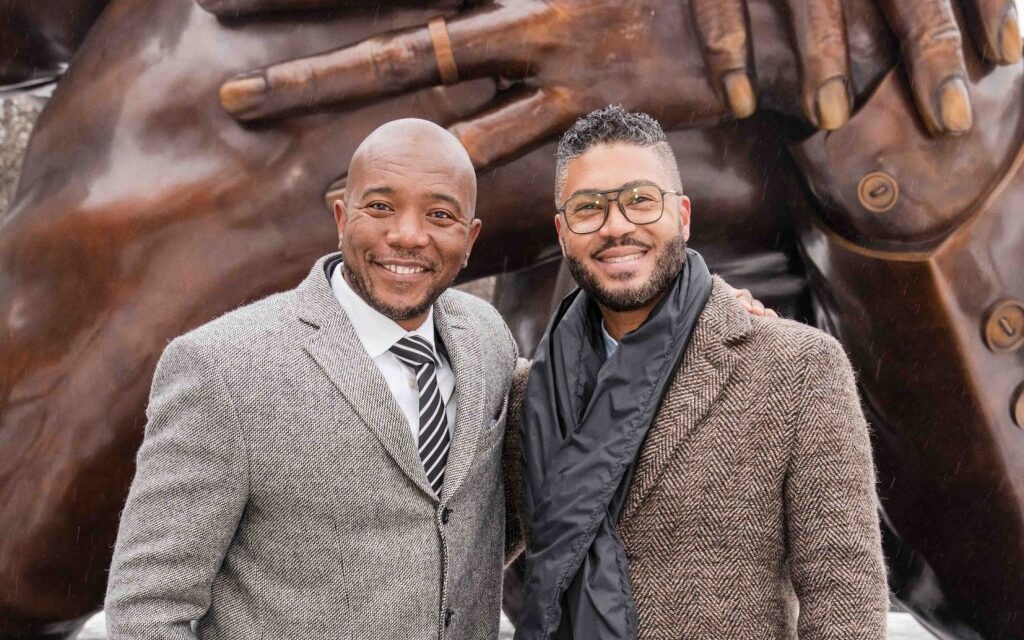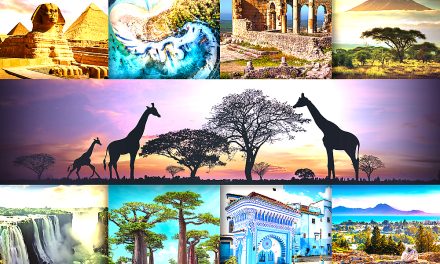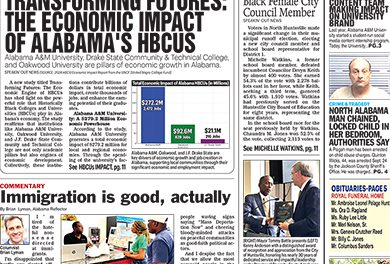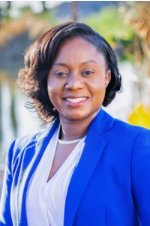By Ashleigh Fields
AFRO Assistant Editor
afields@afro.com

Credit: Courtesy Photo
South African citizens are bracing for a new wave of change as a cluster of political parties emerge ahead of election day, set for 90 days after the country’s current Parliament session comes to a close in May.
Presidential candidates hope to overturn the incumbent African National Congress (ANC) in the 2024 election. The group, known for successfully propelling Nelson Mandela into power, has been the reigning dominant party for an uninhibited 30 years since the nation’s transition from apartheid to one majority rule in 1994. However, the last three decades have been filled with corruption, crippling unemployment and pleas to modify the current power grid to prevent widespread outages.
Mmusi Maimane has solidified himself as a strong candidate, willing to leave no stone unturned in his campaign bid. Maimane traveled to Washington, D.C. on Jan. 23 to converse with elected officials in the United States.
“My main goal in coming to the U.S. is to build international solidarity and also for people to recognize that the story in South Africa is not just one of farm herders or load shedding, but the opportunities that are there,” said Maimane. “Topics such as AGOA (African Growth and Opportunity Act) and political change in South Africa are important for the U.S.”
“I often find the U.S.only listens to certain voices and fails to recognize the multi complexity that exists in what South Africa has,” he continued.
During his time in the country, Maimane visited the foreign embassy of South Africa, met with Sen. Ed Markey (D-Mass.), Massachusetts Lt. Gov. Kim Driscoll (D) and with Black leaders in Boston to see the progress they are making on creating economic and cultural development. He is adamant about learning how Blacks are overcoming oppression in America and eager to bring solutions back home.
“Harvard just released a report now that demonstrates the fact that the conditions of particularly Black South Africans in spatial relations still remain the same as what they were during apartheid. Now, that is a function of what the last 30 years of mismanagement of the economy by the current government have meant,” said the presidential nominee.
The report entitled, “Growth Through Inclusion in South Africa” was released in 2023 by Harvard’s Kennedy School of Government and highlights the country’s stagnant economy, political gridlock and lack of government reform throughout 170 pages.
“It is painfully clear that South Africa is performing poorly, exacerbating problems such as inequality and exclusion,” says the report. “South Africa is facing the economic consequences of collapsing state capacity.”
According to the World Bank, the disproportionate wealth gap between White and Black South Africans establishes the country as the most unequal society on the planet. Ten percent of the population accounts for more than 80 percent of the nation’s wealth.
The rising concerns echoed by cries for equity sparked the creation of Build One South Africa, a political party founded by Maimane in 2022. Over the course of the past two years, the group has increased access to water in small communities, supported young entrepreneurs and invested in education for the youth.
“I felt I needed to pursue a vision upon which South Africans together regardless of race could prosper together and live together peacefully is what our reason for existence is,” Maimane shared. “We needed a vision on the ballot that didn’t seek to polarize, that didn’t seek to tell people that they go to the ballot to express their race or their economics, but they put it as a referendum on their future.”
As the former leader for the Democratic Alliance, the ANC’s largest opposing party, Maimane, who was a presidential candidate in 2019, described his tangible approaches to solving issues with energy, infrastructure and taming the recent spike in unemployment which currently ranks number one in the world.
“Load shedding is the outstripping of demand surpassing supply. South Africa’s supply issues have got a number of complications in that, one, we have a coal based power supply, and we need to transition,” Maimane told the AFRO, proposing that solar panels and small modular reactors take its place.
“I do think that there needs to be an introduction of a national venture capital fund that allows for those young people who want to be entrepreneurs to become one. Let’s help fund their projects,” he continued. “South Africa’s GDP growth isn’t going to come out of big industry only, it has to come out of micro entrepreneurs and innovators going forward. We want to be scaling them up so that they can be involved in coding and creating the Silicon Valley that South Africa and Africa can have.”
In terms of global trade, the commonwealth is well endowed. The United States and South Africa boast one of the largest trade relationships in the world, with bilateral investment and trade totaling $1.6 trillion annually according to the U.S. embassy.
“Africa has already got many of the resources that the world needs. You can’t go into battery technology without depending on minerals that come from Africa. The dilemma for Africa has been the exporting of raw materials and the purchase,” said Maimane. “I do think that as far as innovation, as far as technology is going, Africa holds the key to the future. Given that 1.4 billion people by 2040 will live within the continent. And the majority of which are at a median age at 23, which means these are young people in the main.”
As his election bid continues, Maimane is set on garnering international support not only for his nation but the continent as a whole.
“We need to recognize the opportunity that sits in Africa,” Maimane concluded. “If we deal with some of these impediments– whether it’s financing infrastructure growth– we can achieve a new point of success in Africa that can give what Steve Biko so aptly described as ‘a more human face to the world.’”
At this time, challengers for the position of president remain open with the following parties expected to submit candidates: the African National Congress; Democratic Alliance; Economic Freedom Fighters; Inkatha Freedom Party, Freedom Front Plus; African Christian Democratic Party; United Democratic Movement; African Transformation Movement; Good; National Freedom Party; African Independent Congress; Congress of the People (COPE) and Pan-Africanist Congress of Azania.
The post South African presidential nominee, Mmusi Maimane, visits U.S. to “build international solidarity” appeared first on AFRO American Newspapers.










